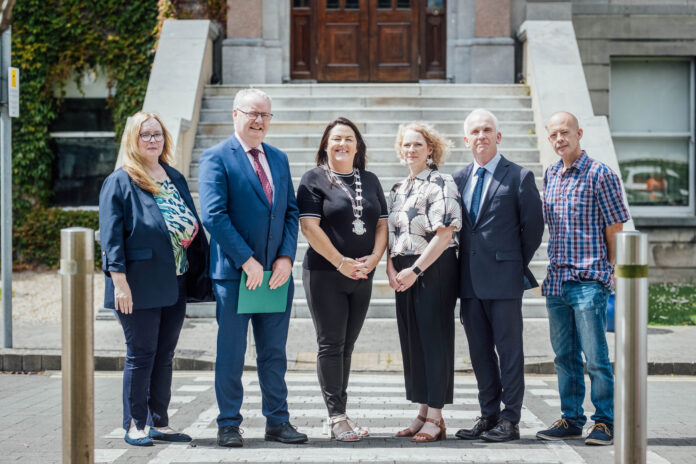
SCHOOL children in Limerick’s most disadvantaged areas and post-primary schools are languishing for years on waiting lists for essential services, including mental health supports, because their families cannot afford to access them privately.
And without enough supports, school staff say they are having to “play God” by being left to decide which vulnerable children get help and which do not.
That’s according to newly published research by Mary Immaculate College (MIC).
The Oscailt Needs Analysis on Multidisciplinary Support in DEIS Schools in Limerick City report reveals that schools are trying to teach children whose most basic needs for clothing and food are not being met in communities where violence and addiction are rampant.
Information garnered for the report shows that access to services are complicated and difficult for families who don’t have the money to pay for them privately.
Official figures from the end of last year show that there were 421 children in Limerick waiting for psychology services, 94 of them for more than a year.
At the same time, there were 834 children waiting to be assessed for language and speech therapy, 68 of those for up to two years.
605 children in the Mid West area described as having “complex needs” were waiting more than a year for even an initial contact about services.
Against such a background, the research, conducted by the Transforming Education through Dialogue (TED) project at MIC’s curriculum development unit, identified “an urgent and growing need for services such as creative therapies (art, music, and play therapy), family support services, Child and Adolescent Mental Health Services (CAMHS), and enhanced access to the National Educational Psychological Service (NEPS)”.
It also stressed that the scale of need has intensified in the wake of the Covid-19 pandemic.
It described the current systems of multidisciplinary support as inefficient and not meeting the needs of students from Oscailt schools and Regeneration communities and, therefore, not fit for purpose.
“As a result, the onus of meeting students’ needs falls to Oscailt schools who provide a significant level of support for students and their families. A greater level of resourcing is urgently required to meet the variety and complexity of multidisciplinary and other support needs of students,” researchers said.
Priority areas identified include emotional and behavioural support, support for separation/divorce/single-parent families, community context, speech and language and social skills.
13 schools in the Oscailt Network — a collective of DEIS schools in Limerick City facilitated by MIC — participated in the research, funded through Limerick City and County Council’s Regeneration Economic and Social Intervention Fund.
“These schools serve some of the city’s most socioeconomically disadvantaged communities, including Ballinacurra Weston, Southill, St Mary’s Park, and Moyross,” the report stated.
Dr Ruth Bourke, lead researcher of the report and assistant professor and coordinator of the TED Project at MIC, said the “research shows that big challenges in the health and education systems — like staff shortages and long waiting lists — are stopping children and young people in Limerick’s city centre and Regeneration communities, such as Ballinacurra Weston, Southill, St Mary’s Park, and Moyross from getting the support they need”.
“These delays are holding them back in both their education and access to healthcare, which affects their overall wellbeing and future chances in life.
“But this situation can change. What we need now is a joined-up, well-planned strategy that brings schools, services, and communities together to give these students the right support, when and where they need it.”
Launching the report, Minister of State for Special Education and Inclusion, Michael Moynihan, said the research “aligns with the government’s commitment to develop an education therapy service, which will see therapists under the NCSE working on site in schools during the school day to support children”.
“Beginning in special schools during the 2025/2026 school year, this will then expand to mainstream schools, and will, I believe, help address some of the issues raised in this report.”


